This citizens’ jury was part of a multi-method bioethics project The Algorithm Will See You Now: The Ethical, Legal and Social Implications of Adopting Machine Learning Systems for Diagnosis and Screening, which was funded by the National Health and Medical Research Council (Ideas Grant 1181960). The project was approved by the University of Wollongong Human Research Ethics Committee (2022/314).
National Australian Citizens’ Jury on Using Artificial Intelligence (AI) in Healthcare
Community Jury
Thirty Australians were randomly selected to participate, and all were passionately engaged with the process. The jurors were diverse and closely matched to the Australian population on gender, age, ancestry, level of education, urban/regional/rural place of residence, and state or territory of residence. For this jury, we sought the services of the Sortition Foundation, a not-for-profit organisation that provides selection and stratification services for citizen assemblies or community juries.
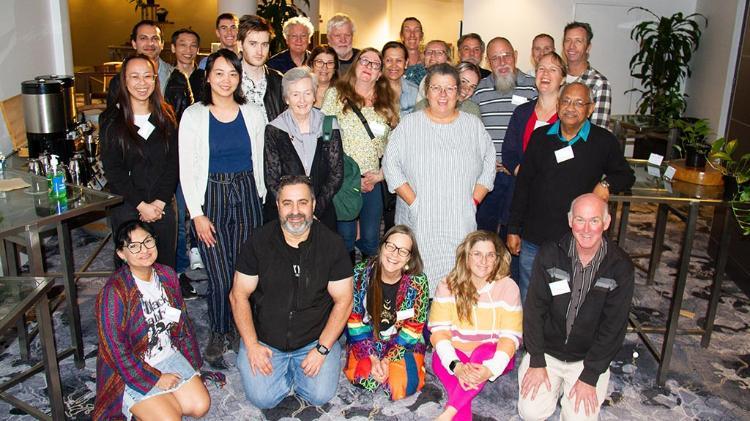
The question for the jury
Artificial Intelligence (AI) refers to a set of computer-based technologies that can do things that previously required human thinking and action. Artificial Intelligence is widely used in everyday life.
Artificial intelligence systems are being developed to detect or diagnose diseases. Artificial intelligence systems can help healthcare workers to find disease, or in some cases, can find disease automatically, without help from healthcare workers.
In this jury, you will be asked to make recommendations on the following question:
Under what circumstances, if any, should artificial intelligence be used in Australian health systems to detect or diagnose disease?
In making your recommendations, members of the jury are asked to consider:
- What are the most important issues that you have heard about during the expert sessions and your discussions?
- How important are potential benefits of these artificial intelligence systems in our reasoning, and which potential benefits seem most important?
- How important are potential harms or dangers of these artificial intelligence systems in our reasoning, and which harms or dangers seem most important?
- What should be done about the potential for algorithmic bias and unfair outcomes from these artificial intelligence systems?
Read the 'Community Jury on Artificial Intelligence in Health' Information booklet.
The roadmap
This jury process is in two parts. Part 1 is online, Part 2 is in person in Sydney.
Zoom Session 1
Thursday, 16 March, 5.30 pm-7.30 pm AEST
Opening whole group session | 45 minutes
Welcome and introductions, why are you here, and why is the jury process important?
Relationship and skill building | 1 hour and 15 minutes
Meeting one another, and building critical thinking skills
Thursday, 16 March through to Sunday, 19 March: Bulletin board 1 activated
During these 3 days, look at the evidence videos online & read the information provided - free to interact with other participants and ask questions
Zoom Session 2
Sunday, March 19 , 3 pm - 4.30 pm AEST
Small group discussions
What did you think of the evidence, and what questions should we ask the experts?
Thursday, 23 March through to Sunday, 26 March: Bulletin board 2 activated
During these 3 days, look at the evidence videos online & read the information provided - free to interact with other participants and ask questions
Zoom Session 3
Sunday, 26 March, 3 pm - 4.30 pm AEST
Small group discussions
What did you think of the evidence, and what questions should we ask the experts?
Thursday, 30 March: Bulletin board 3 activated
Final feedback from the experts uploaded online. Let us know if you have any more questions and we will go looking for answers!
Next up
Sydney!
Day 1: Friday, 31 March
3 pm - 6 pm
3 pm - Welcome
Welcome and getting started
4 pm - Experts
Check in with the experts: reviewing what we've learned, and any questions
5 pm - Introduction
Get to know each other and the process
DAY 2: Saturday, 1 April
9 am -5 pm
9 am - Discussion 1 (1 hour and 30 minutes)
What matters to us?
10.30am - Break (30 minutes)
11 am - Discussion 2 (1 hour and 30 minutes)
Understanding the range of perspectives in the room
12.30 pm - Break (1 hour)
1.30 pm - Deliberation 1 (1 hour and 30 minutes)
What needs attention? Narrowing our focus to key areas
3 pm - Break (30 minutes)
3.30 pm - Deliberation 2 (1 hour and 30 minutes)
Documenting agreement and talking about areas of disagreement
DAY 3: Sunday, 2 April
9 am - 3 pm
9 am - Deliberation 3 (1 hour and 30 minutes)
Producing our final list of recommendations and clarifying reasons
10.30 am - Break (30 minutes)
11 am - Deliberation 4 (1 hour and 30 minutes)
Final drafting and preparing to present
12.30 pm - Break
1.30 pm - Final session
Presentation to supporting organisations
Feedback on the jury process and we say goodbye
Organisations supporting the process
- The Royal Australian And New Zealand College Of Radiologists
- Three Australian Health Research Translation Centres
The Royal Australian and New Zealand College of Radiologists, or RANZCR, is supporting the community jury. RANZCR is one of 25 specialist medical colleges accredited by the Australian Medical Council. These colleges train and certify medical specialists, set standards, and support and promote research in their fields. RANZCR is the college for radiologists: the specialists who interpret and analyse images produced by diagnostic imaging technologies (like CT-scans or MRI scans). RANZCR has provided the statement below.
RANZCR is committed to improving health outcomes for all, by educating and supporting clinical radiologists and radiation oncologists. RANZCR is dedicated to setting standards, professional training, assessment and accreditation, and advocating access to quality care in both professions to create healthier communities. Our members are critical to health services: clinical radiology is central to the diagnosis and treatment of disease and injury and radiation oncology is a vital component in the treatment of cancer. RANZCR creates a positive impact by driving change, focusing on the professional development of its members and advancing best practice health policy and advocacy, to enable better patient outcomes.
RANZCR has been at the forefront of policy on medical artificial intelligence in the region, and is committed to engaging with members of the public and understanding their perspective on using AI for diagnosis and screening. RANZCR will make an opening statement at the meeting of the jury in Sydney, will join the final day of the meeting to hear the jury’s recommendations, will consider the recommendations made by the jury, and will provide a public response to the recommendations which will be forwarded to all members of the jury.
Three Australian Health Research Translation Centres from Victoria, New South Wales and Western Australia respectively, are jointly supporting the community jury. The three Centres have provided the statement below.
- Monash Partners Academic Health Science Centre
- Maridulu Budyari Gumal, the Sydney Partnership for Health, Education, Research and Enterprise (SPHERE)
- Western Australian Health Translation Network
We are delighted to be non-financial sponsors and observers of the “Community Jury on Artificial Intelligence” in Health, to be held in Sydney, 31st March to the 2nd April,
Our three Research Translation Centres consist of partnerships between leading health service, research and teaching organisations focused on innovating for better health and wellbeing. Each are accredited by the National Health and Medical Research Council (NHMRC).
These centres, along with seven others, make up the Australian Health Research Alliance (AHRA) whose priorities are the systematic embedding of research in Australian health care; better alignment of research capacity with clinical priorities and more, better and faster research translation to deliver patient, public and economic benefit.
The use of AI in healthcare for disease detection and diagnosis aligns closely with two of AHRA’s top priorities: consumer and community involvement and data driven healthcare improvement.
The expert witnesses
Four experts will be presenting evidence to the jury.
- Professor Farah Magrabi
- Associate Professor Katy Bell
- Professor Ian Scott
- Distinguished Professor Wendy Rogers
Farah is a Professor of Biomedical and Health Informatics at the Australian Institute of Health Innovation, Macquarie University. She has a background in Electrical and Biomedical Engineering and is an expert in the design and evaluation of digital health and Artificial Intelligence (AI) technologies for clinicians and consumers. She leads the NHMRC Centre of Research Excellence in Digital Health's Safety research stream and is co-chair of the Australian AI Alliance’s Working Group on safety, quality and ethics.
Farah will provide expert evidence on the question “What is Artificial Intelligence and how does it work in healthcare?”
Farah will also be our ‘Expert in the room’ for the Community Jury.
Professor Farah Magrabi expert presentation: What is AI and how does it work?
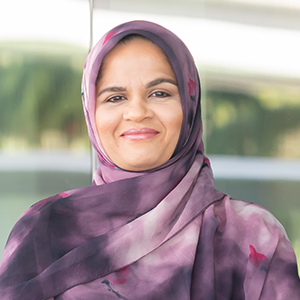
Associate Professor Katy Bell is a clinical epidemiologist in the University of Sydney’s School of Public Health, specialising in the evaluation of medical tests used for screening, diagnosis, and monitoring. She is a member of the Evaluation Subcommittee for the Australian Government’s Medical Services Advisory Committee (MSAC) which considers funding for new tests on the Medicare Benefits Scheme (MBS). She holds an NHMRC Investigator Grant supporting research into how early detection tests can be used to benefit health and not cause harm, and is a Chief Investigator for the NHMRC funded Wiser Healthcare collaboration that aims to support better value care for all Australians.
Katy will provide expert information on the questions; How do screening and diagnosis work now? and What is evidence-based medicine?
Associate Professor Katy Bell Expert Presentation: Screening and Diagnosis
Associate Professor Katy Bell Q&A Videos
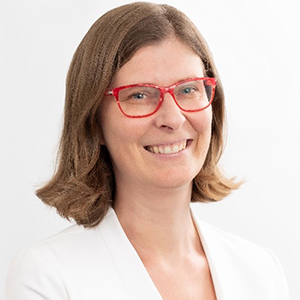
Ian Scott is the Director of Internal Medicine and Clinical Epidemiology and a Professor with the Faculty of Medicine, University of Queensland. He is a consultant general physician with research interests in healthcare Artificial Intelligence, clinical decision making, and quality and safety improvement issues in clinical practice, among others. He currently chairs the Queensland Clinical Networks Executive, is the inaugural chair of the Australian Deprescribing Network, Metro South Clinical AI Working Group, and Queensland Health Sepsis AI Working Group and is a founding member of the Australian and New Zealand Affiliate of the US Society to Improve Diagnosis in Medicine.
Ian will provide expert evidence on the potential and proven benefits of healthcare AI
Professor Ian Scott Expert Presentation: Benefits of AI in healthcare
Professor Ian Scott Q&A Videos
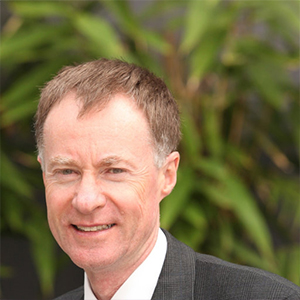
Wendy is a Distinguished Professor in the Philosophy Department and the School of Medicine at Macquarie University. She has wide ranging research interests including the ethics of AI and other new technologies in healthcare, the ethics of synthetic biology, organ transplant abuse and feminist bioethics. She is Co-Director of the Macquarie University Research Centre for Agency, Values and Ethics and a chief investigator on a number of ARC and NHMRC grants. Her recent publications include the co-edited 2023 Routledge Handbook of Feminist Bioethics.
Wendy will provide expert evidence on the potential risks or harms of healthcare Artificial Intelligence.
Professor Wendy Rogers expert presentation: Potential harms and wrongs of using AI healthcare tools
Professor Wendy Rogers Q&A videos
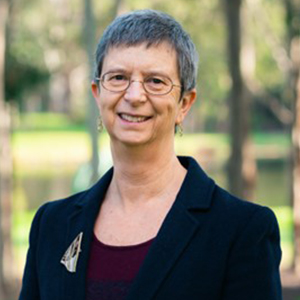
Materials Generated
Jury recommendations: Carter, S.M., Aquino, Y.S.J., Carolan, L., Frost, E., Degeling, C., Rogers, W.A., Scott, I.A., Bell, K.J., Fabrianesi, B. and Magrabi, F. (2024), How should artificial intelligence be used in Australian health care? Recommendations from a citizens’ jury. Med J Aust. (doi.org/10.5694/mja2.52283)
Editorial about the jury: Sullivan, C. and Pointon, K. (2024), Artificial intelligence in health care: nothing about me without me. Med J Aust. (doi.org/10.5694/mja2.52282)
After the presentation of evidence by experts, members of the jury raised questions.
These questions are listed here: Community Jury on Artificial Intelligence in Health: Questions from the Jury
The Research Team
- Professor Stacy Carter
- Dr Yves Saint James Aquno
- Associate Professor Chris Degeling
- Emma Frost
- Lucy Carolan
Professor Stacy Carter is the Director at ACHEEV. Stacy’s training is in public health, and her expertise is in qualitative and deliberative methodologies, public health ethics, feminist bioethics and empirical ethics. Her research program focuses on artificial intelligence and big data in health, reducing harm and waste in healthcare, screening and diagnosis, and including consumers and citizens in healthcare decision making.
Yves is a clinician and philosopher working as a research fellow at the Australian Centre for Health Engagement, Evidence and Values at the University of Wollongong. His research expertise includes medical ethics, ethics of cosmetic surgery and ethics of artificial intelligence in healthcare.
Chris Degeling is an Associate Professor at ACHEEV. As a social scientist with a background in veterinary medicine, Chris’ research focuses on the intersection of public health ethics, public health policy and emerging issues at the human-animal-ecosystem interface. Chris is a specialist in qualitative research and deliberative methodologies like community juries.
Emma is doing her PhD at the Australian Centre for Health Engagement, Evidence and Values at the University of Wollongong. She is from Jervis Bay (Yuin Country). Emma’s research focuses on Australians’ views on the use of Artificial Intelligence in healthcare.
Lucy is a research assistant at ACHEEV working on a range of health-related projects. Her current research focuses on understanding the values of the Australian public regarding the implementation of Artificial Intelligence in diagnosis and screening.
Impact
- Establishment of a consumer panel on Artificial Intelligence, consisting of 12 members across Australia. The panel is chaired by consumer health advocate, Ms Jen Morris.
- Professor Stacy Carter was invited to be part of the NSW Health AI Taskforce to facilitate the implementation of the jury recommendations.
